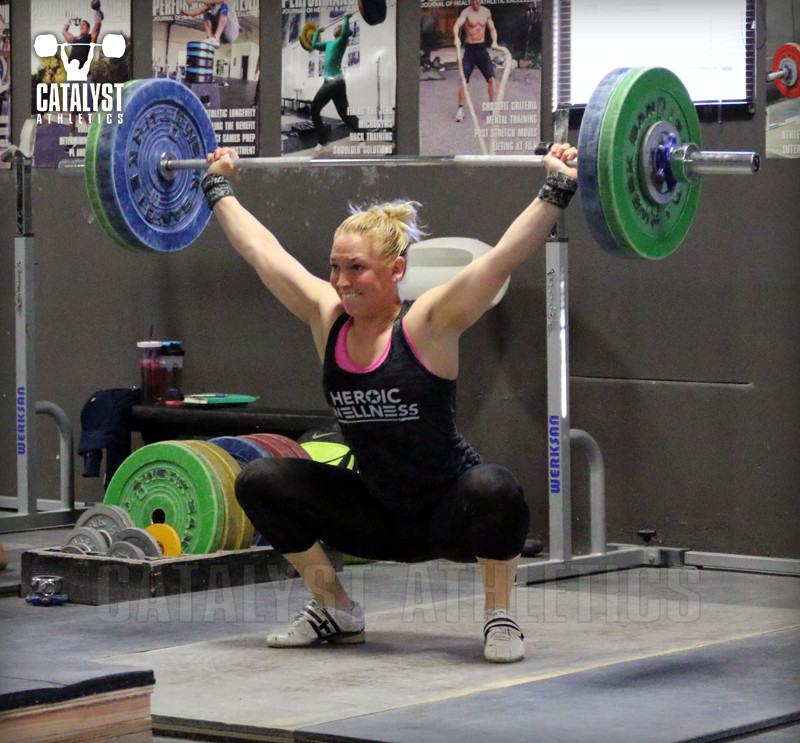Ask Greg: Issue 137

Matt Asks: Is anybody able to adapt to different lifting techniques (Russian, Chinese...) or is there something biological (or body shape, composition...) that makes it easier for certain individuals to adhere to certain lifting techniques? And that technique to be the most efficient for them?
Greg Says: The common styles of a given country will be based primarily on the common body type. Most European and Asian countries are very genetically homogenous—very different from the US, where we have genetic backgrounds that cover the entire range, and mixes as well.
For example, Asian lifters tend to have short legs and long torsos, whereas European/Russian lifters tend to have more balanced proportions or slightly longer legs and shorter torsos. This will mean that Asian lifters will tend to pull with very upright postures and open the hips sooner in the pull because this style exploits their stronger and more mechanically-suitable legs. In contrast, European lifters will tend to pull somewhat less upright and stay over the bar longer in the pull because they need to use the hips and legs together rather than rely more on the legs.
All that said, a given lifter can use elements of various styles to suit him or herself by choice to some degree, but primarily these decisions should be made according to what’s most advantageous based on proportions, strengths and weaknesses to find what will produce optimal results. It’s a mistake to try to model your lifting technique after a lifter you have nothing physically in common with, no matter how much you want to lift like him or her.
Scott Asks: Do you suggest doing powerlifting/body building assistance work?
Greg Says: No and sometimes. Bodybuilding accessory work certainly has a place. It’s especially helpful for young, new lifters to help condition joints and build some general muscle mass. We do it 2-3 days/week during preparation mesocycles and then drop it in the last 4 weeks or so before a competition. Of course if a lifter needs to gain weight, the bodybuilding work is also helpful to keep the weight gain muscle.
Regarding powerlifting, this is one of those things I just can’t understand. The idea that a weightlifter should do powerlifting work to get stronger shows a fundamental misunderstanding of weightlifting—the obvious implication is that weightlifting training doesn’t develop strength, which is nonsense. The absence of powerlifting style deadlifts seems to blow people’s minds—as if an athlete will never get stronger without them.
First, snatching and clean & jerking are not just “technique” exercises like some powerlifters love to claim repeatedly. At heavier weights, they absolutely develop strength. Second, lifters perform plenty of strength work—squats, pull and deadlift variations, pressing variations, etc. In fact, most lifters spend the majority of a given training cycle in preparation mesocycles that emphasize strength… Needless to say, I find it irritating.
Greg Says: The common styles of a given country will be based primarily on the common body type. Most European and Asian countries are very genetically homogenous—very different from the US, where we have genetic backgrounds that cover the entire range, and mixes as well.
For example, Asian lifters tend to have short legs and long torsos, whereas European/Russian lifters tend to have more balanced proportions or slightly longer legs and shorter torsos. This will mean that Asian lifters will tend to pull with very upright postures and open the hips sooner in the pull because this style exploits their stronger and more mechanically-suitable legs. In contrast, European lifters will tend to pull somewhat less upright and stay over the bar longer in the pull because they need to use the hips and legs together rather than rely more on the legs.
All that said, a given lifter can use elements of various styles to suit him or herself by choice to some degree, but primarily these decisions should be made according to what’s most advantageous based on proportions, strengths and weaknesses to find what will produce optimal results. It’s a mistake to try to model your lifting technique after a lifter you have nothing physically in common with, no matter how much you want to lift like him or her.
Scott Asks: Do you suggest doing powerlifting/body building assistance work?
Greg Says: No and sometimes. Bodybuilding accessory work certainly has a place. It’s especially helpful for young, new lifters to help condition joints and build some general muscle mass. We do it 2-3 days/week during preparation mesocycles and then drop it in the last 4 weeks or so before a competition. Of course if a lifter needs to gain weight, the bodybuilding work is also helpful to keep the weight gain muscle.
Regarding powerlifting, this is one of those things I just can’t understand. The idea that a weightlifter should do powerlifting work to get stronger shows a fundamental misunderstanding of weightlifting—the obvious implication is that weightlifting training doesn’t develop strength, which is nonsense. The absence of powerlifting style deadlifts seems to blow people’s minds—as if an athlete will never get stronger without them.
First, snatching and clean & jerking are not just “technique” exercises like some powerlifters love to claim repeatedly. At heavier weights, they absolutely develop strength. Second, lifters perform plenty of strength work—squats, pull and deadlift variations, pressing variations, etc. In fact, most lifters spend the majority of a given training cycle in preparation mesocycles that emphasize strength… Needless to say, I find it irritating.
| Greg Everett is the owner of Catalyst Athletics, publisher of The Performance Menu Journal and author of Olympic Weightlifting: A Complete Guide for Athletes & Coaches, Olympic Weightlifting for Sports, and The Portable Greg Everett, and is the writer, director, producer, editor, etc of the independent documentary American Weightlifting. Follow him on Facebook here. |
Search Articles
Article Categories
Sort by Author
Sort by Issue & Date
Article Categories
Sort by Author
Sort by Issue & Date

